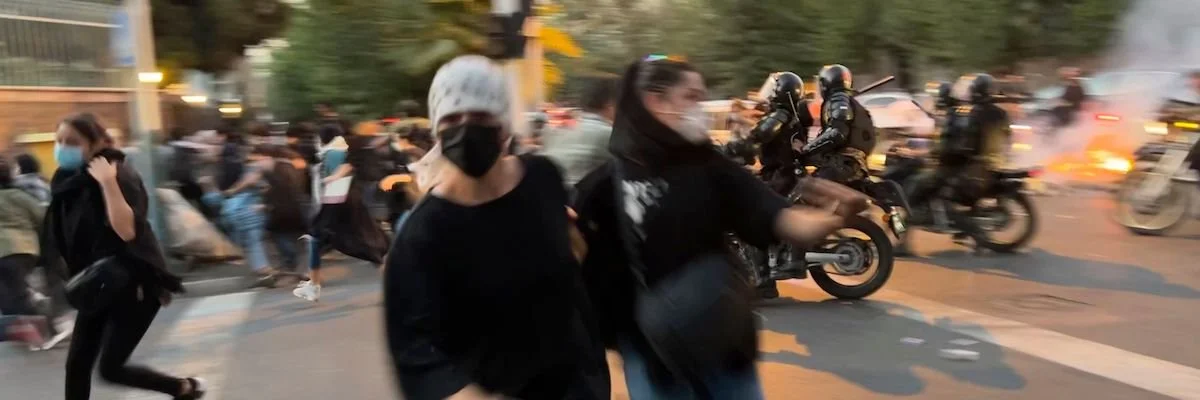Can SCO Members Achieve Connectivity in the Face of Conflict?
The two-day Shanghai Cooperation Organisation (SCO) summit took place last week in Samarkand, Uzbekistan. Aside from agreeing to the Samarkand Declaration, which summarises the intention of SCO members to foster deeper economic partnerships, the gathered leaders also signed 44 documents consisting of numerous memorandums, roadmaps, and action plans for cooperation in tourism, artificial intelligence, and energy.
The SCO leaders mostly focused on the importance of new transit routes and economic cooperation. Chinese President Xi Jinping, who travelled to the summit as part of his first foreign tour since the COVID-19 pandemic, touted ambitious plans to expand economic cooperation with Central Asian states.
Negotiations over the China–Kyrgyzstan–Uzbekistan railway took place in the sidelines of the summit and the three parties agreed to conduct a feasibility study with a view to constructing the new route. Uzbek officials also lobbied for another transit corridor from Uzbekistan through Afghanistan and Pakistan, but support among SCO members has been tepid given the need to engage with the Taliban government in Kabul.
Uzbekistan also signed 17 cooperation agreements with Iran focused primarily on transport and trade. Tashkent is seeking further access to Iran’s Chabahar port for its economic development. The Iranian delegation, led by president Ebrahim Raisi, signed a Memorandum of Obligations that paves the way for full SCO membership. Iran’s accession process could be completed in less than a year. The presence of Turkish President Recep Tayyip Erdogan and Belarusian President Aleksandr Lukashenko reflected the SCO’s interest in expanding its influence, even among non-member countries.
But the spirit of cooperation and the visions of connectivity were undermined by reminders of the numerous conflicts in which SCO member countries are involved. During the summit, Russian President Vladimir Putin’s interactions with fellow leaders were tainted by the war in Ukraine. While there were no official statements about the Ukraine invasion during the summit, most member states found their way to express dissatisfaction with the economic turmoil and destabilisation caused by Russia's invasion. Indian Prime Minister Narendra Modi told his Russian counterpart that “now is not an era of war.” Several leaders, including Kyrgyz President Sadyr Japarov, made Putin wait in front of cameras before meeting him—a power move that Putin has famously used in recent years.
China, too, expressed its concerns over the consequences of the current events in Ukraine. The strongest message came in the form of vocal support for Kazakhstan. In a statement, Xi said that “no matter how the international situation changes, we will continue to resolutely support Kazakhstan in protecting its independence, sovereignty, and territorial integrity.” Russian hawks had recently threatened Kazakhstan after Kazakh leaders took steps to distance themselves from Moscow.
But the war in Ukraine was not the only conflict to cast a shadow over the summit. During the summit, clashes began between two member states, Tajikistan and Kyrgyzstan. Meanwhile, tensions also rose between Armenia and Azerbaijan, an SCO dialogue partner whose president, Ilham Aliyev was in attendance at the summit.
The border between Tajikistan and Kyrgyzstan has been troubled since the demise of the Soviet Union. The former Soviet Republics have failed to properly demarcate their shared border due to complicated geographic terrain, mixed ethnic populations, and general political instability. But since last year, the regular border clashes have become more dangerous and more deadly. New clashes between Tajik and Kyrgyz forces erupted during the SCO summit, leaving dozens dead and hundreds injured. As the clashes between the two Central Asian republic escalated, Russia attempted to show its influence. Just after the summit, Putin spoke with the Tajik and Kyrgyz presidents and called on them to "prevent further escalation." Both countries are members of the Russia-led Collective Security Treaty Organization. A tenuous ceasefire is now in place.
Other SCO member states and dialogue partners may be implicated in the conflict if it escalates further. Earlier this year, Tajikistan began production of Iranian-designed drones as part of a novel joint venture. Meanwhile Kyrgyzstan has purchased Bayraktar drones from Turkey.
The Samarkand Summit demonstrated the value of the SCO as a platform for bilateral and multilateral initiatives of its member and associate countries. The SCO is especially attractive for strong personalist leaders, whose politics prevent active participation in other international rules-based blocs and bodies. However, because the SCO does not contribute to a rules-based order, the organisation has struggled in the face of conflict—such as the clashes that took place last week between Tajikistan and Kyrgyzstan.
If the SCO is to mature as an organisation and make good on its vision of connectivity, it must also serve as a platform for conflict resolution. Until now, SCO member states have viewed longstanding tensions among other members as something outside the bounds of the bloc. India is assuming presidency of the SCO and Modi did chide Putin over his invasion of Ukraine during their bilateral meeting. Will far-flung conflicts in Eastern Europe, the Caucasus, and Central Asia, be of little concern or too costly to ignore?
Photo: Kremlin.ru




